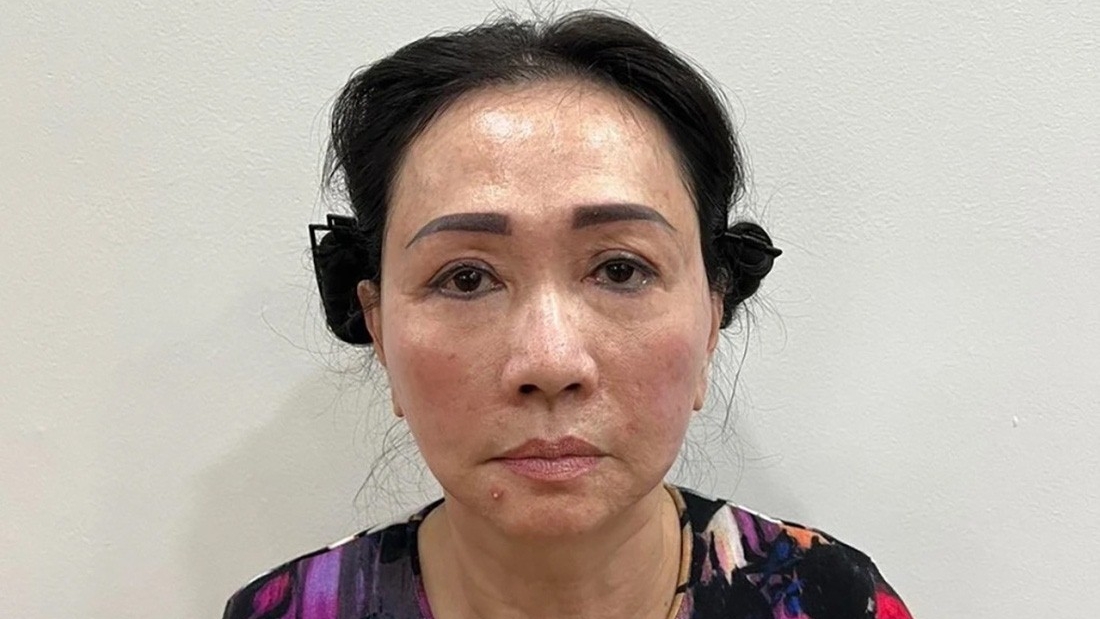Today’s News

Image Source: Tuoi Tre News
The trial has commenced for Vietnamese real estate tycoon Truong My Lan, accused of a staggering USD 12 billion fraud, marking a significant chapter in Vietnam’s extensive anti-corruption initiative led by the ruling Communist party. The case, which implicates officials from both the central bank and government, could result in a death sentence or imprisonment for Lan, shaking the foundations of the country’s burgeoning property and corporate bond markets.
As part of a broader crackdown, Vietnam’s Communist party has already detained hundreds of senior government officials, including cabinet ministers. Lan, serving as the chair of Van Thinh Phat Group, stands out as the most prominent business figure facing allegations in this sweeping corruption probe.
Despite Vietnam’s status as a major beneficiary in the global supply chain shift away from China, the economy experienced a slower growth rate of 5.05% in 2023, falling short of the government’s target due to decreased overseas demand. The anti-corruption campaign has cast a shadow over governmental project approvals, leading to increased state scrutiny of private enterprises, potentially denting investor confidence, analysts warn.
Truong My Lan, aged 67, hails from one of Vietnam’s wealthiest families, primarily amassed through property ventures. The charges against her include bribery, embezzlement, abuse of power, and “lack of responsibility causing serious consequences,” as reported by state media. Despite maintaining her innocence, Lan’s arrest in 2022 has brought about no comment from her legal representatives.
Vietnamese authorities accuse Lan of utilizing her controlling stake of approximately 90% in Saigon Joint Stock Commercial Bank (SCB) to divert a staggering 304 trillion dong (USD 12.3 billion) to her real estate company, Van Thinh Phat. SCB extended loans exceeding USD 44 billion to Van Thinh Phat and affiliated entities between 2012 and 2022, constituting 93% of the bank’s total disbursed loans. Additionally, authorities claim that Van Thinh Phat employed allegedly fraudulent companies to sell corporate bonds through SCB to the bank’s depositors.
The complexity of the case expands further, involving 85 individuals, including 15 officials from Vietnam’s central bank. These central bank officials are alleged to have received bribes from Lan to conceal the purported fraud.
Nguyen Khac Giang, a visiting fellow at Singapore’s Iseas-Yusof Ishak Institute, emphasizes the trial’s significance, indicating the Communist party’s willingness to extend its anti-corruption efforts to the private sector, despite potential economic risks. The impact of Lan’s case has already reverberated through Vietnam’s business landscape, causing concern among private enterprises about operating risks and collaboration with state-owned companies.
Furthermore, the anti-corruption campaign has instilled hesitation among government officials in project approvals, fearing potential entanglement in corruption allegations. This multifaceted scenario highlights the broader implications of Vietnam’s determined pursuit of accountability and transparency in its socio-economic landscape.
Other News
NYCB Shares Drop 23% on Internal Control Concerns
New York Community Bancorp (NYCB.N) faces a 23% share decline, hitting a low since 1996, after revealing internal control issues, raising worries about financial stability.
Companies House Probes ‘Erroneous’ Filings
Companies House faces scrutiny as “erroneous” filings, affecting Sainsbury’s, Macquarie, and the Bank of England, raising concerns about data accuracy and manipulation.
Capital One Wins Lawsuit Over Foreign Exchange Charges
A Virginia judge dismisses a lawsuit accusing Capital One of overcharging on foreign currency transactions, stating that the cardholders failed to demonstrate clear contractual violations.



